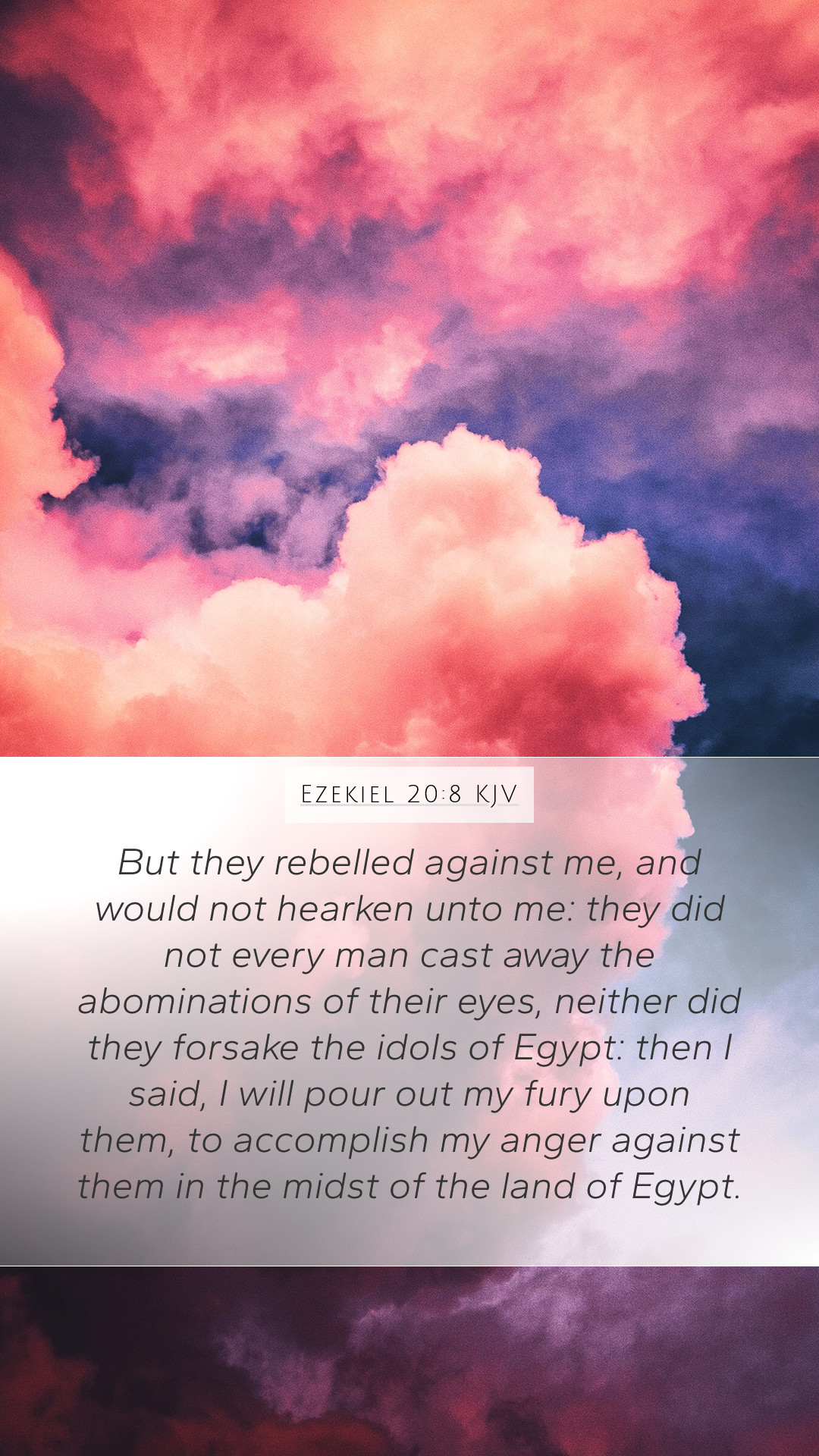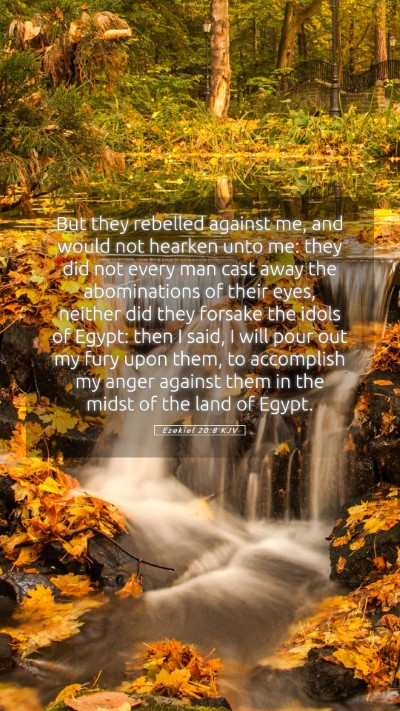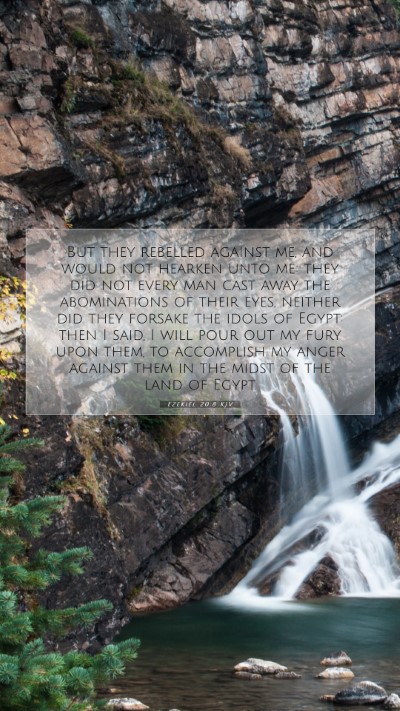Understanding Ezekiel 20:8
Ezekiel 20:8 states: “But they rebelled against me, and would not hearken unto me: they did not every man cast away the abominations of their eyes, neither did they forsake the idols of Egypt: then I said, I will pour out my fury upon them, to accomplish my anger against them in the midst of the land of Egypt.”
Summary of Biblical Context
This verse is part of a broader discourse where the prophet Ezekiel recounts God’s past dealings with the people of Israel. The Israelites’ continuous rebellion against divine commandments and their persistence in idolatry are significant themes throughout the Book of Ezekiel.
Bible Verse Meaning by Commentaries
Matthew Henry's Commentary
Matthew Henry emphasizes the persistent disobedience of the Israelites. He explains that the refusal to abandon the idols indicates their hardened hearts. God’s fury, in response, reflects His righteousness and the moral order that demands justice for such rebellion. Henry notes that the reference to "abominations of their eyes" suggests the allure of idolatrous practices that captivated the people's focus and devotion away from God.
Albert Barnes' Notes on the Bible
Albert Barnes provides insight into the significance of Egypt as a symbol of bondage and idolatry. He points out that the idols of Egypt represent not just physical images but the entire system of worship that detracts from the unique relationship between God and His people. Barnes stresses that despite God's continuous guidance and mercy, the Israelites chose rebellion, resulting in God's righteous wrath that was justified due to their unfaithfulness.
Adam Clarke's Commentary
Adam Clarke elaborates on the actions of the Israelites, indicating that their rebellion was not an isolated incident but a reflection of their historical patterns of disobedience. Clarke notes how this verse encapsulates the essence of the covenant relationship between God and Israel, highlighting that their failure to comply with God’s will warranted divine judgment. He ties this to the principle of accountability, where the Israelites' choices directly lead to God's reaction.
Theological Insights
The overarching theme of Ezekiel 20:8 showcases the seriousness of turning away from God. It prompts believers to reflect on their own lives and consider the idols that may draw them away from their commitment to God's principles. Understanding the nature of rebellion is crucial for personal spiritual assessment and growth.
Application of the Verse
In a practical sense, Ezekiel 20:8 encourages believers to identify and remove contemporary forms of idolatry that may exist in their lives. This could include anything that distracts from devotion to God, be it material possessions, relationships, or even personal ambitions.
Related Bible Cross References
- Exodus 32:9-10 - The Israelites' rebellion with the golden calf.
- Isaiah 42:24-25 - The wrath of God due to rebellion against His commandments.
- Jeremiah 5:23-25 - The obstinacy of the Israelites in turning away from God.
Final Thoughts
To fully grasp the meaning of Ezekiel 20:8 and similar verses, engaging in Bible study groups or utilizing online Bible study tools can be fruitful. Doing in-depth Bible verse analysis fosters a deeper understanding of Scripture and guides individuals in their journey of faith.


